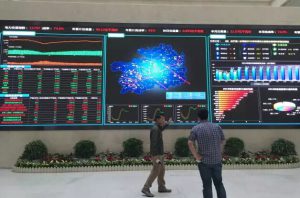The liberalization of German power market increased importance for power trading. In China power trading can unleash huge economic potentials and guide the Chinese power market reform towards a more liberalized market along with higher penetration of renewable energies.

The liberalization of the German power market started in 1998, but it took in fact seven years until the German regulator, the Bundesnetzagentur (BNetzA) had been created. Along with the liberalization of European power markets in the last decades, power trading became an ever more important task. Balancing supply and demand in the power market is to a large extent possible due to power trading and the resulting interaction between power producers, trading companies and power retailers. In addition, more renewable energies in the power sector increased the need of intelligent management of power plants and generation portfolio. Competition between new and old companies increased and incentivized innovative and cost-efficient business strategies.
China’s power market reform by many heralded as a cut with old monopolistic structures is still lagging behind its major targets. Sure enough reforms in the power sector are no piece of cake as the European and German example show. One of the most important aspects is to allow for power trading to balance generation and consumption. It will be crucial for China’s power generators and also industrial consumers to understand the underlying mechanisms of liberalized power market. Therefore knowledge on power procurement along with portfolio and risk management as well as strategies for power trading will have to be employed. Energy Brainpool offers an intensive training program for Chinese power companies to enable them to develop the strategies needed in a new market environment.
The power market reform in China also aims to create an environment where different companies compete in the retail business and where trading platforms allow for big consumers to settle prices directly with generators rather than with the monopolistic grid companies. As a consequence a great amount of trading platforms have been inaugurated and allow for setting up bilateral power trading contracts. The analysis of first pilot operations and power trading centers showed that a considerable number of industrial consumers and power generators participate in those newly established field. Average power prices for large industrial users already fell in the province of Guizhou, where one of the most progressive and extensively used direct trading platforms has been established.
In a competitive environment businesses can adopt their power generation and consumption schedules and thus react to differences in power prices. For the Chinese power market reform to be effective, it is imperative that power prices are allowed to fluctuate and thus to indicate a surplus or shortage of electricity in the system. Currently, prices do not react to high feed-in of renewable energies, and a great deal of zero-carbon electricity from renewables is being curtailed. In many cases such a behavior could be reduced, if power prices adjust to generation and in turn power generation also adjusts to different price signals. Power trading establishes the link between generation and consumption and thus reacts allows to changing power prices.



